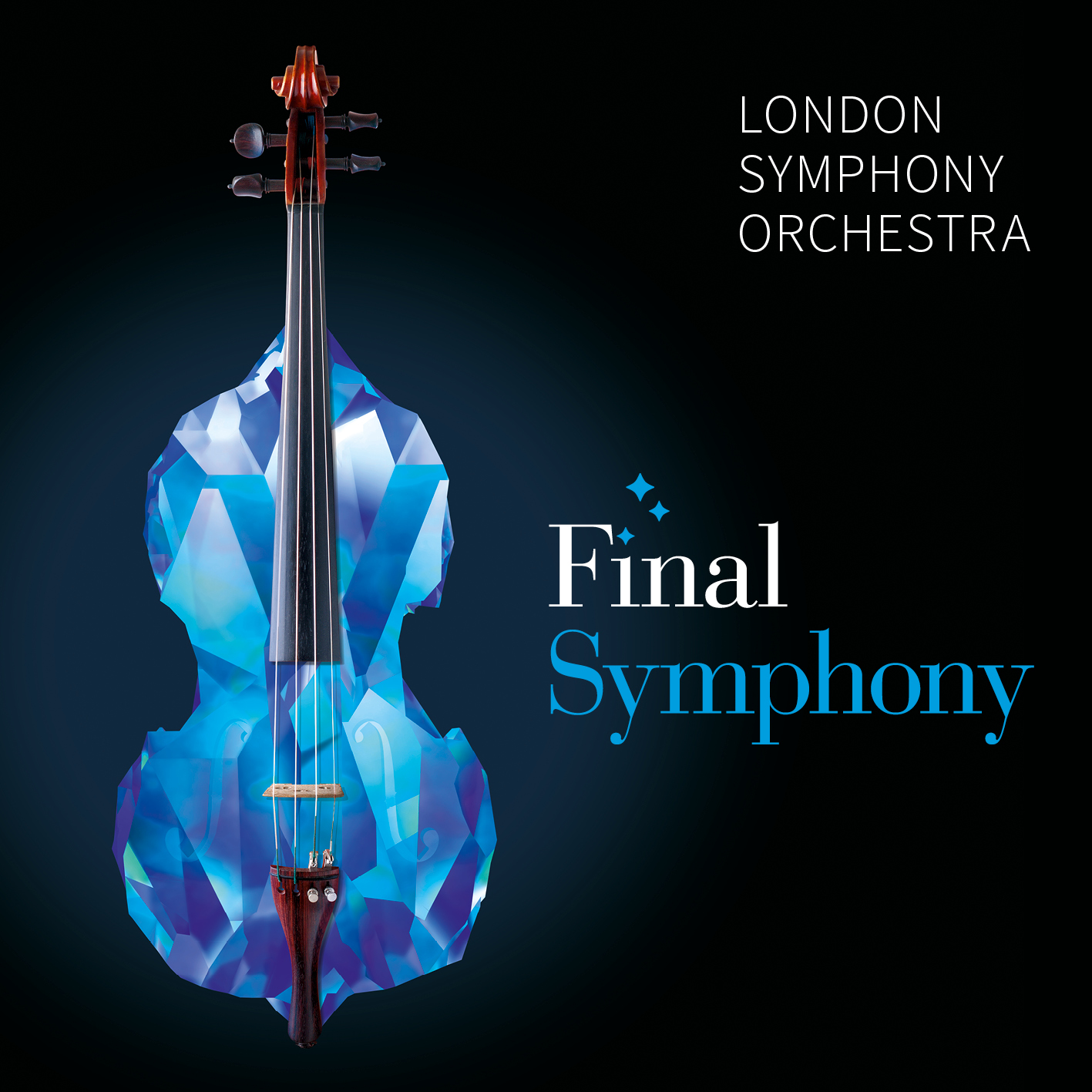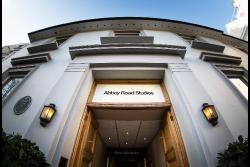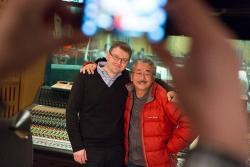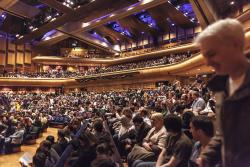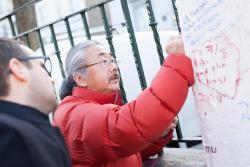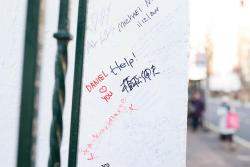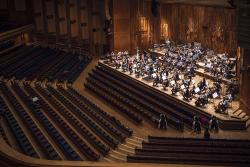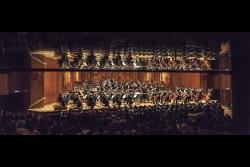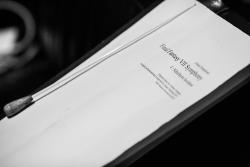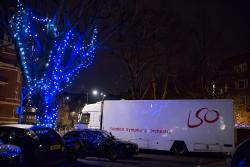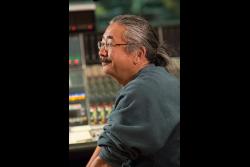February 11, 2015 Thomas Böcker is no stranger to RPGFan, as he spoke to us back in 2010. He has produced numerous concert performances and recordings as a part of Spielemusikkonzerte (German for video game music concerts), including Symphonic Fantasies, Symphonic Legends, and most recently, Final Symphony. Busy though he has been with a studio recording of the latter, Thomas graciously spent some time answering our questions about the wonderful music and performances he is a part of.
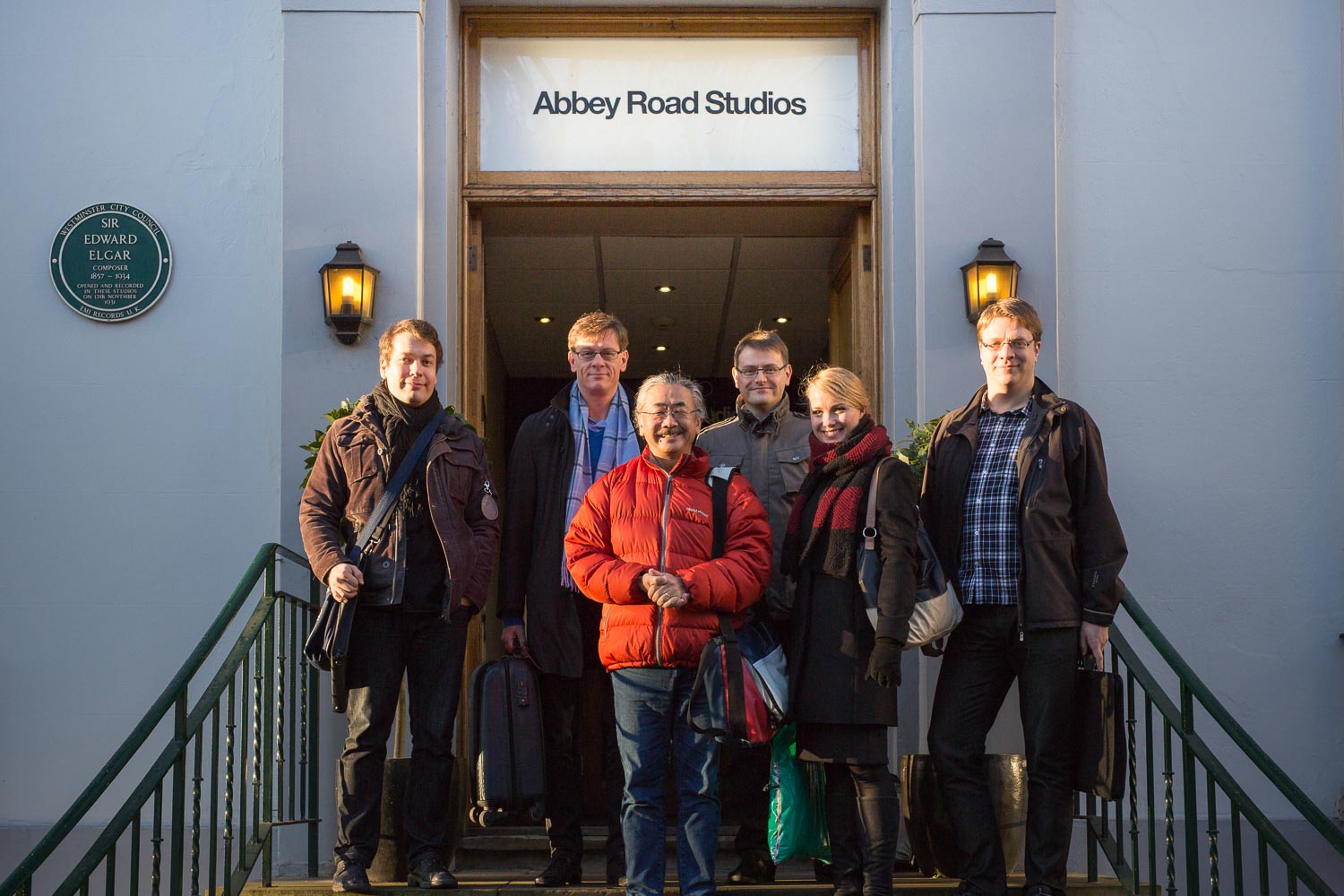
Thomas Böcker: My pleasure! For more than 10 years now, I've been a producer for video game music concerts and recordings. Back in 2003, I organised the very first video game music concert outside of Japan, at the Gewandhaus in Leipzig, Germany, and I've been involved in multiple concert performances every year since. I guess that one of the special attributes of my projects is that we — my team at Merregnon Studios — come up with entirely new arrangements for full concerts on a regular basis, which is a really unique feature.
Notable projects of recent years include Symphonic Shades (a tribute to Chris Hülsbeck), Symphonic Fantasies (music from Square Enix games), Symphonic Legends (music from Nintendo games), Symphonic Odysseys (a tribute to Nobuo Uematsu) and most recently Final Symphony (music from Final Fantasy VI, VII and X).
Final Symphony is our biggest success so far, with performances in Germany, the United Kingdom, Japan, Denmark, Sweden and Finland. Back in 2013, it was the first live performance of video game music by the famous London Symphony Orchestra - and we just recorded our album with them at the legendary Abbey Road Studios.
I'm also very pleased to be able to share the news that we now have a global digital release date for the album. You'll be able to buy Final Symphony from all leading digital retailers from February 23, so mark the date in your calendars! As I've said previously, for me, this album marks the ultimate video game music production. It's well worth checking out our official Final Symphony website over at ffsymphony.com for more information on the tour and the album, as well as concert and recording photos and quotes from the team.
Thomas: Favorite composers — this is hard to answer and it always depends a bit on what I discovered recently, as I am constantly looking for new music. However, Sergei Prokofiev and Dmitri Shostakovich certainly come to mind as constants. In the world of video game music, it is Jonne Valtonen without a doubt, but also Nobuo Uematsu, Yuzo Koshiro, Chris Huelsbeck, Yasunori Mitsuda — and many others.
When it comes to arrangers, it is clear that I love the work of Jonne Valtonen and Roger Wanamo the most — but also Shiro Hamaguchi's scores for the early Final Fantasy concerts. I also want to mention Masashi Hamauzu here, who wrote some superb arrangements, also for my concerts.
What I would certainly like to see in video game music is more quality work, not just bad copies of Hollywood soundtracks. In the world of live orchestral performances, I would like to see more brave decisions too. I am not blaming the composers here — I am blaming some of the producers, the decision makers. They should make themselves familiar with the process behind composing and push boundaries.
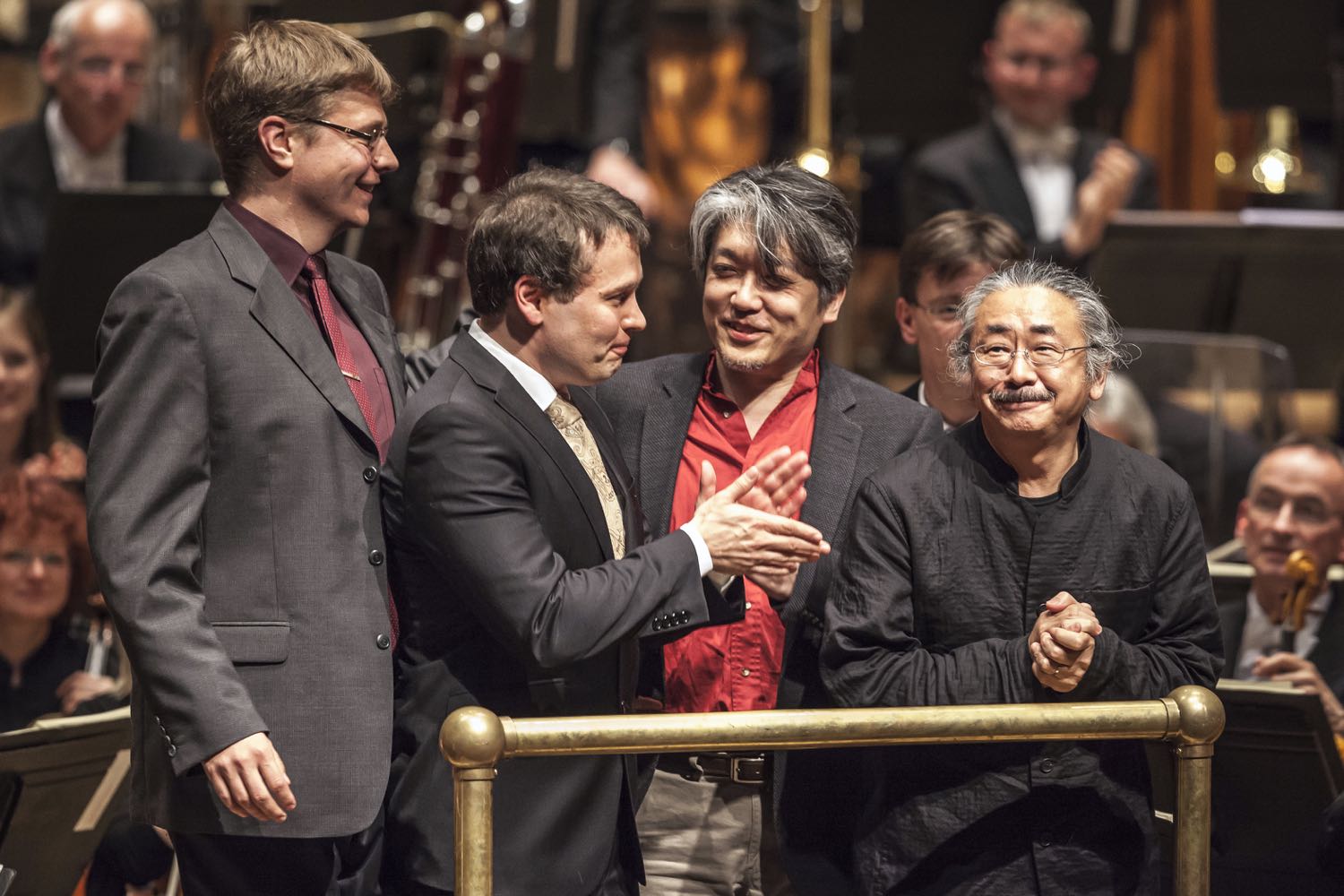
Thomas: I am in the privileged situation that I can approach any project that I would love to work on. Actually, everybody with a true passion could argue they're in that position, right? Of the productions I've worked on in the past, many of them combine aspects of series I had always wanted to work on, so I cannot really think of a project that would be a dream, in the sense of being too hard to achieve. When I have such dreams, I do my best to make them come true; just as I did with the Final Symphony recording with my beloved London Symphony Orchestra at Abbey Road Studios. That presented everything I had always hoped for, and the result is as spectacular as one would imagine, coming from such a dream team! That said, I still have plenty of ambitions and this year we are definitely going to be making a few announcements.
Thomas: There are many fantastic musicians, obviously, and if the opportunity arises, I will certainly discuss with them if there are options for collaborations. Every time we do concerts, we meet new people, new talents.
For example, as I've worked on bigger projects, I've found myself getting in contact with sound engineers such as Simon Rhodes, who recorded and mixed Hollywood blockbuster scores such as Avatar, Harry Potter and Skyfall. Now he's just finished working with us on Final Symphony. I guess what I want to say is that I have the best core team I could ever imagine, with Jonne Valtonen, Roger Wanamo and Eckehard Stier. As we all work very hard and always want to achieve the highest possible quality, we come in contact with people who think the same way: it is an automatic, natural process.
Thomas: Once the theme of a concert has been decided, research starts which usually takes a month or two, sometimes three. During that time, we watch game walkthroughs on YouTube, we read reviews, analyses, fan comments etc., and needless to say, we play the games — even if we've played them through before, which usually is the case.
After that, we — Jonne Valtonen, Roger Wanamo and myself — share opinions on the best tracks to use, and the way we want to see work on the arrangements done. For example, we discuss if the music fits in the style of a piano concerto, or a symphonic poem, or a traditional suite. From then, the arrangers work for several months, and I will get updates sent over to me, so I can check the scores and send feedback. A lot of work goes on like this before the final version of the score arrives with me and then goes on to be prepared for the live performance.
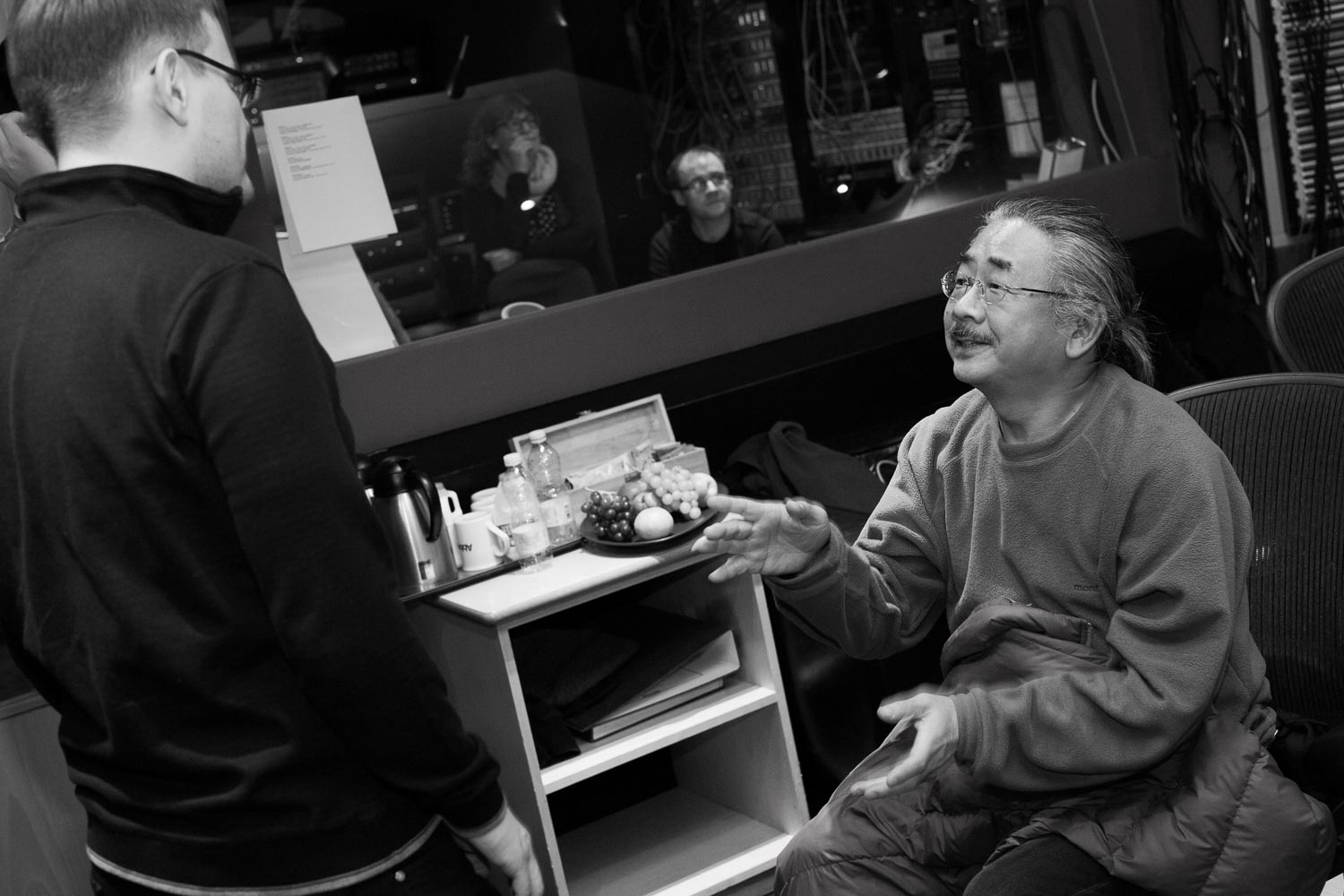
Thomas: If there is one thing I've learned, then it is to never say never. At this moment, I cannot confirm any of those names in upcoming concerts, but it could happen, without a question. I met all three composers in Japan once and we spoke a bit and I would definitely be happy to collaborate one day.
Thomas: It certainly depends on the success of both releases, especially Final Symphony, which is a brand new studio recording. The point was to prove that while many people claim there is no place for such high budget recordings anymore, in fact there is a demand for it, particularly if the quality is really high class.
I love these projects, I must say, and I would be very happy to continue down this path. No question, we felt spoiled to be working with the London Symphony Orchestra at Abbey Road Studios!
Thomas: I've produced and recorded several albums in the past, with Merregnon 2 being the first one, followed by Vielen Dank and drammatica. It's always both — exciting and exhausting. Being in the studio for several days is a demanding process that requires full attention. So yes, it needs a lot of energy, but once you listen to the result, it is very rewarding. The whole experience at Abbey Road Studios was full of great moments. Remember, one of the best orchestras in the world was performing the music in a legendary studio, with Nobuo Uematsu there, supervising. It was almost unreal, and as a producer of video game music concerts and recordings, it is hard to imagine something better than that. I loved every second of it.
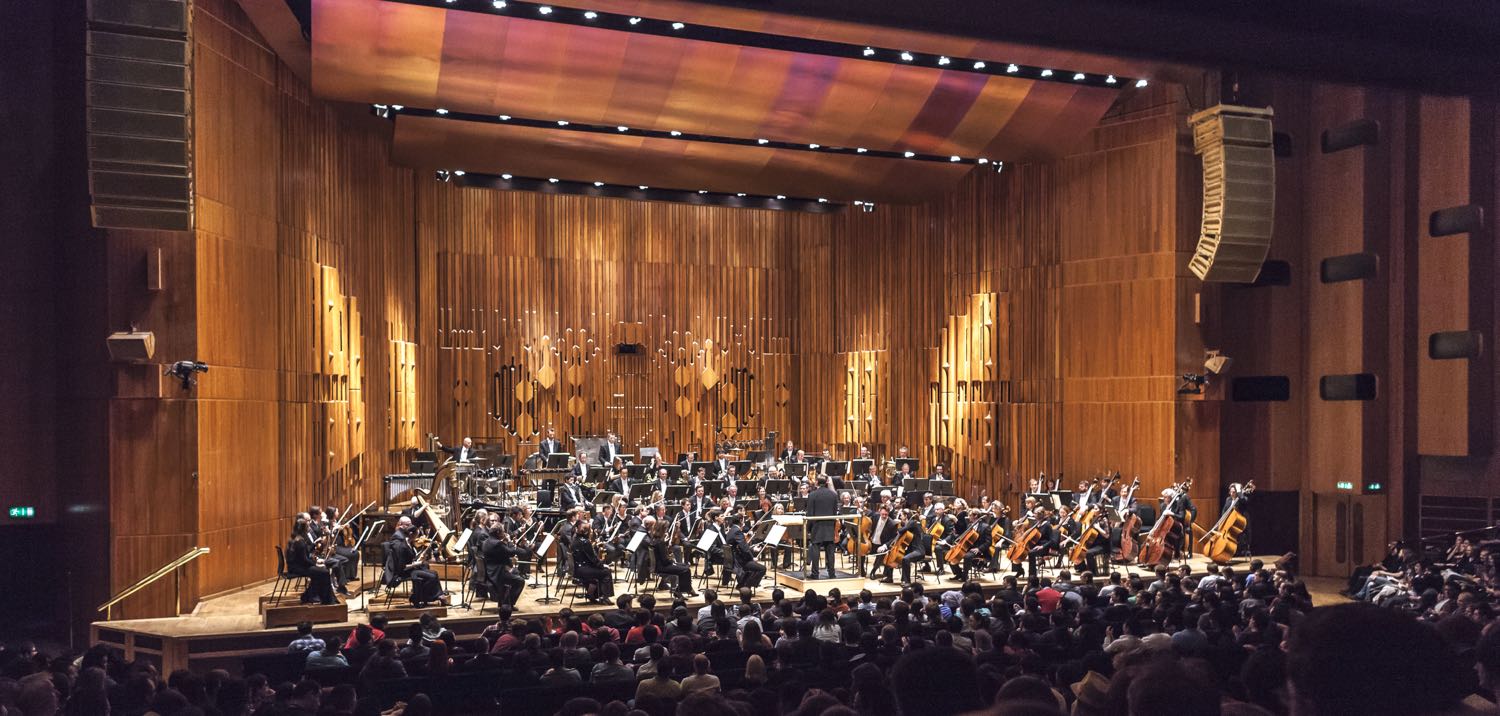
Thomas: I guess it is connected to the fact that music software has become easier to obtain these days, and thanks to the Internet, it also became easier than ever to share your work with the world. Many people can get involved this way, and it is amazing to see some of those talents!
Thomas: Yes, constantly. Orchestra musicians, for example. Especially during the early days of our series, they tended to be a bit shy, as they had no idea what to expect. Once they experienced the atmosphere at the concerts, and once they played the scores — which are always of high quality — they started to appreciate the work quite a bit.
It's the same when I meet with other producers, with bank employees, financial advisers — there is definitely a bit of doubt at first, but they are very excited about the whole idea of video game music being performed by orchestras. One representative of a big game publisher once told me that she started to learn about the quality and impact of video game music at one of my concerts, and that now she would work even harder to support me in the future with my concerts. What more one can ask for?
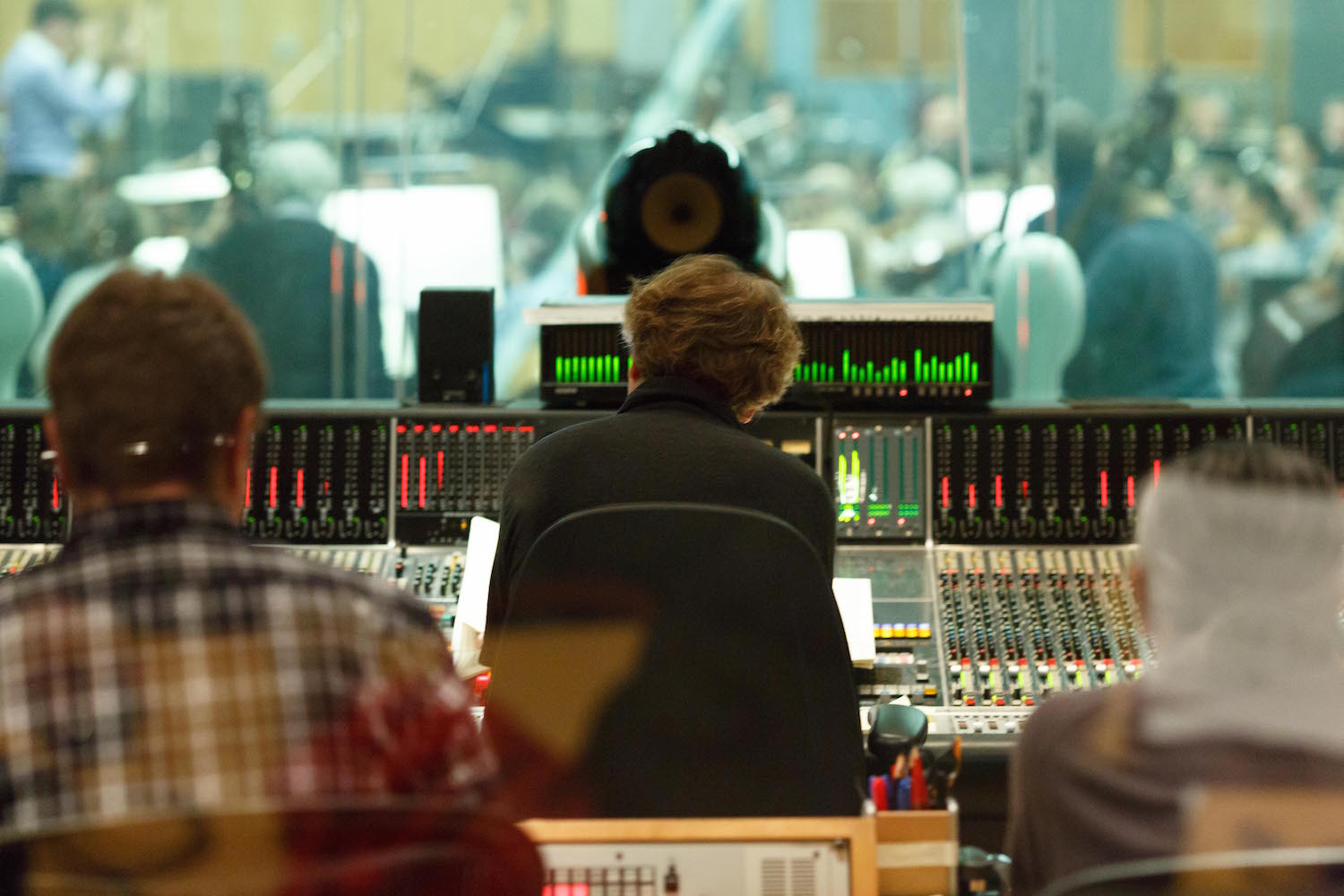
Thomas: I think the big advantage of RPG soundtracks is the variety of melodies, a huge palette of emotions has to be covered in the games, whether it's anger, love, sadness, fear, happiness etc. This makes fantastic source material we can play with at our concerts.
I think it's a bit more difficult with Mario, for example — as great as the music is, it does not really create the same sort of feeling besides nostalgia. Musical story-telling is harder to achieve in a convincing way.
And yes, of course personal preferences play a big role too: it takes us a year's worth of work to come up with a new concert production, so we choose titles and music we like ourselves. This ensures 100% dedication!
Thomas: Indeed, we started to work like that back in 1999 with Merregnon. Frankly speaking, for me it's a natural process, one that does not feel special or unique anymore. What I mean is that people all over the world share their passion for music, but everyone is able to add their own unique character to a project. To give you an example, when Masashi Hamauzu did the Final Fantasy X arrangement for Final Symphony, you could immediately hear the Japanese influence. It has a different sound to it from the rest of the program, which makes the whole concert even more entertaining. So working with people from all over the world adds a lot to the overall quality. For me this kind of collaboration will be the norm, as all the involved parties benefit from it.
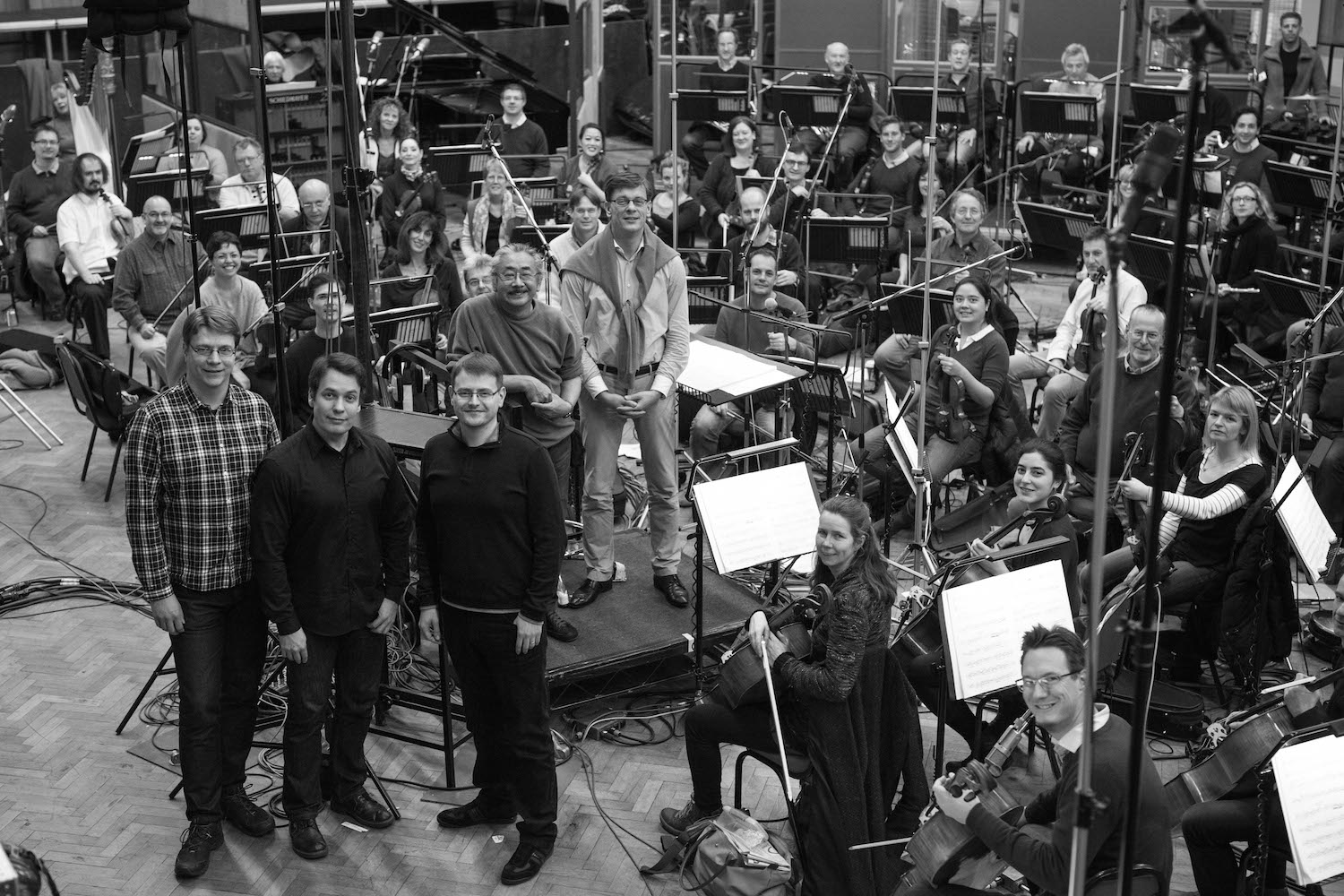
Thomas: drammatica was a result of my work on Vielen Dank. I was recommended as a coordinator because of it, and it was also at the time when I started working with the WDR, the Westdeutscher Rundfunk in Cologne. The former orchestra manager, Winfried Fechner, saw a big opportunity for his orchestra in this project, same as I did, and this is how we promoted the orchestra to Square Enix when they were looking for options. It did not take long to get their agreement, and so I helped coordinate the project in Cologne. Yoko Shimomura provided the arrangements for the production, together with Natsumi Kameoka. I really admire Yoko Shimomura, and we met the last time when Final Symphony was performed in Tokyo, where she attended the concert.
Thomas: Yes! We are just about to announce our latest concert production, so watch out for that news. And thank you so much for supporting Spielemusikkonzerte over all the years! Without you, this would be impossible. What some called a fad at the beginning — the live performance of video game music — is a constant in symphonic concerts today, and that's purely thanks to the passion and loyalty of the fans!
RPGFan would like to thank Thomas Böcker for taking the time to speak with us. Look for a review of Final Symphony in the not-too-distant future!
